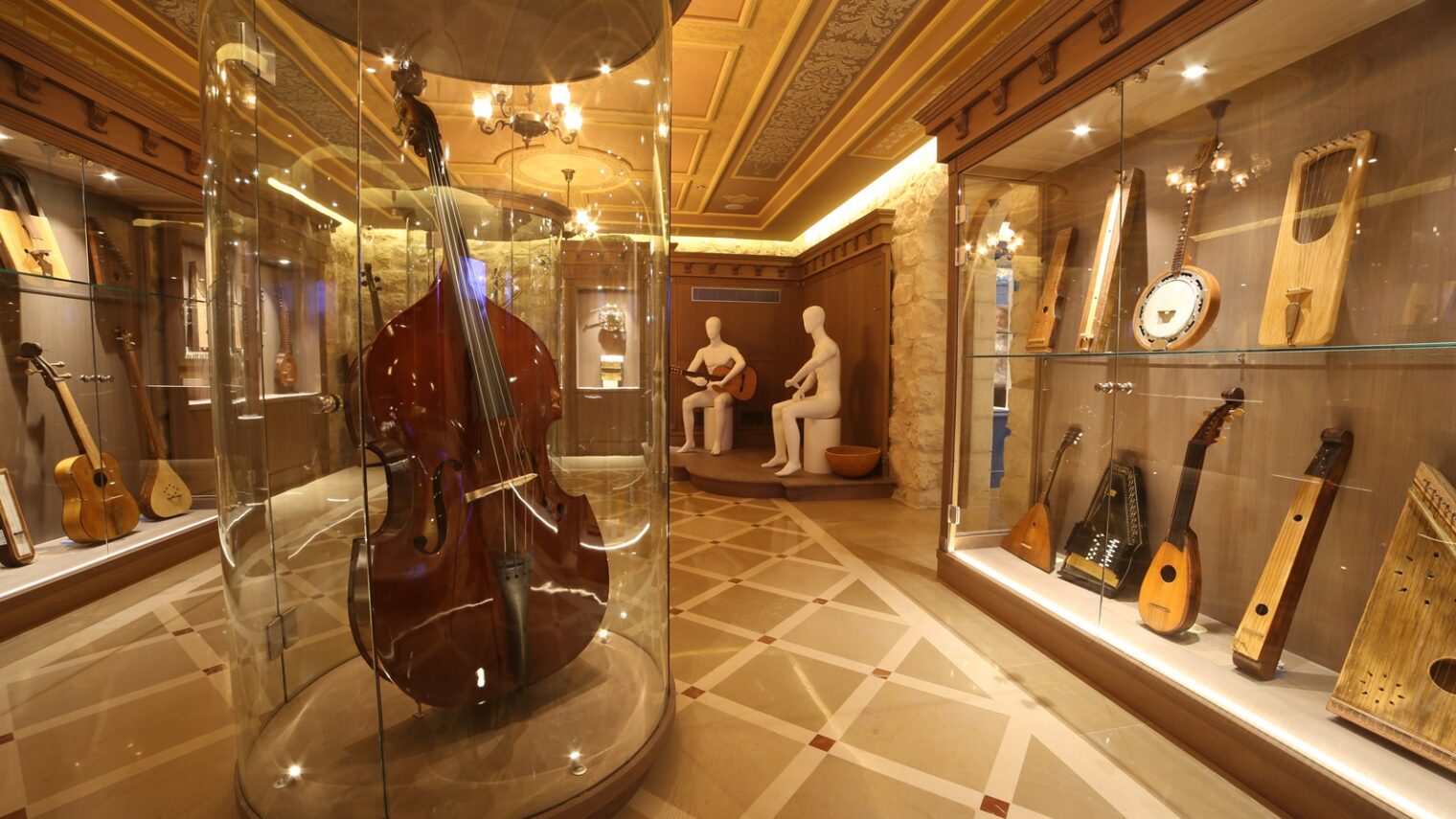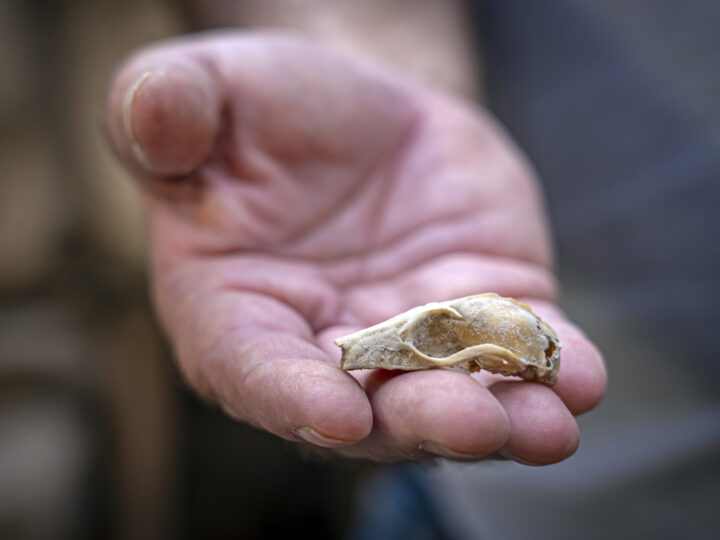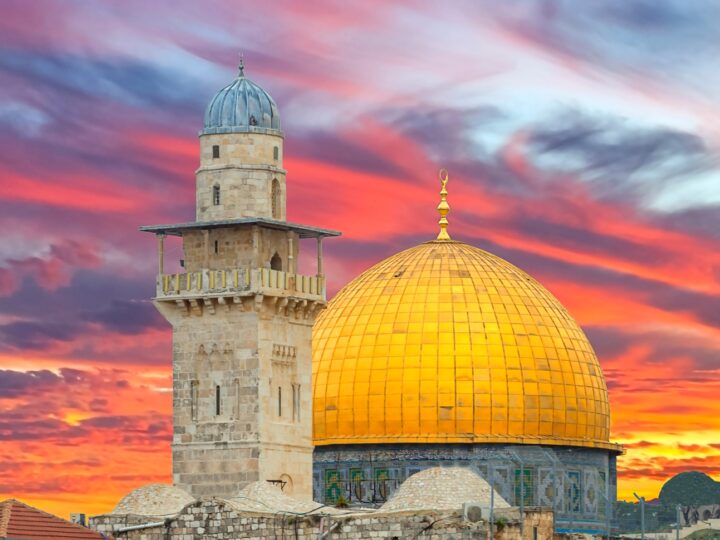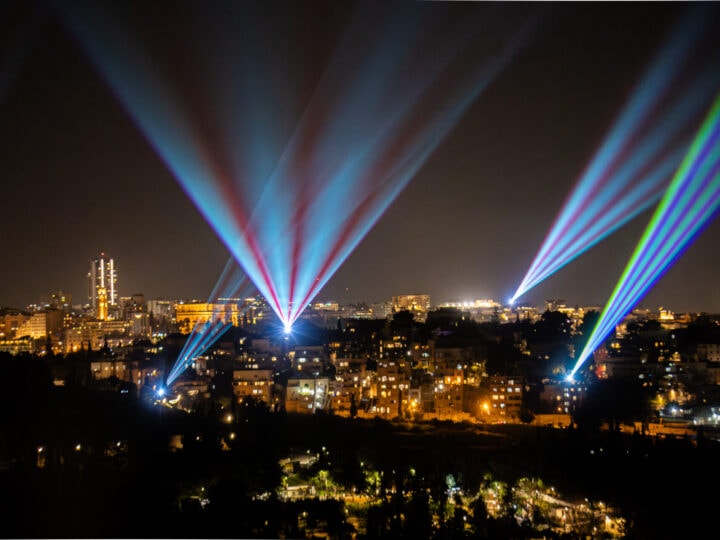Any stroll through downtown Jerusalem’s Ben Yehuda/Zion Square pedestrian mall is punctuated by the music of buskers playing everything from Israeli folk to classic pop.
Now there’s a permanent address for live music and music culture in the neighborhood: Kikar Hamusica (Music Square) on hip Yoel Moshe Salomon Street just off Zion Square.
“We have created Kikar Hamusica right in the center of downtown Jerusalem to unify mankind through the happiness and spirituality that only comes from music,” says Laurent Levy, the French immigrant behind the multifaceted project.
“We believe that all people - regardless of religion, race, social status or cultural roots — have a place in Kikar Hamusica.”
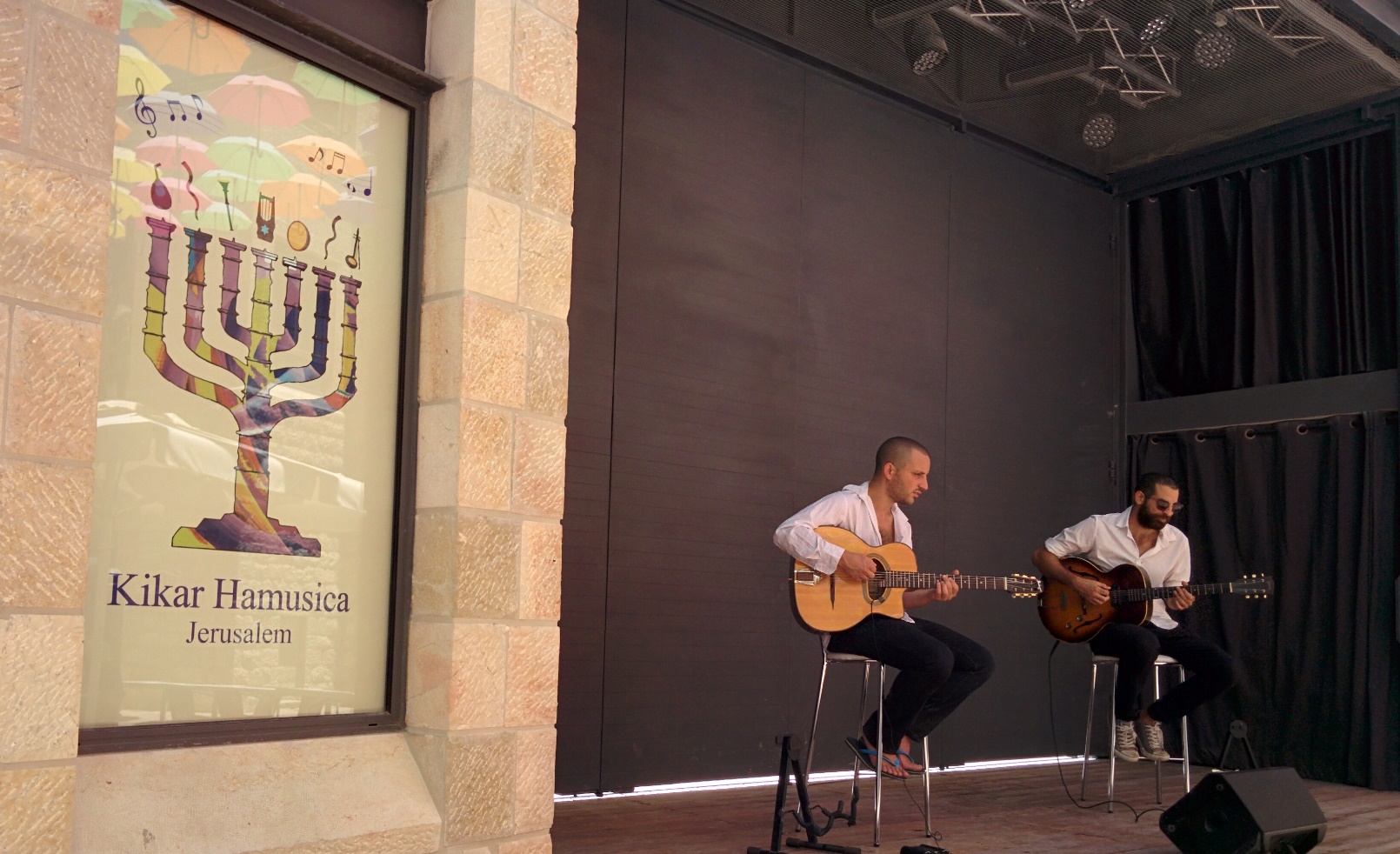
The complex is a work in progress. Already open are the Hebrew Music Museum; a music-themed gift shop and art gallery; 17 luxury apartments decorated in a music theme for short- or long-term rental; and five music-themed restaurants and pubs arrayed around a courtyard with a stage for afternoon and evening performances.
Also planned are a school for comedy, music and voice; a recording studio; Hebrew music library; and a music-themed boutique hotel. The existing boutique hotel next door, The Harmony, is not part of the project though its name certainly blends in well.
The fully interactive Hebrew Music Museum opened in late April following four and a half years of construction.
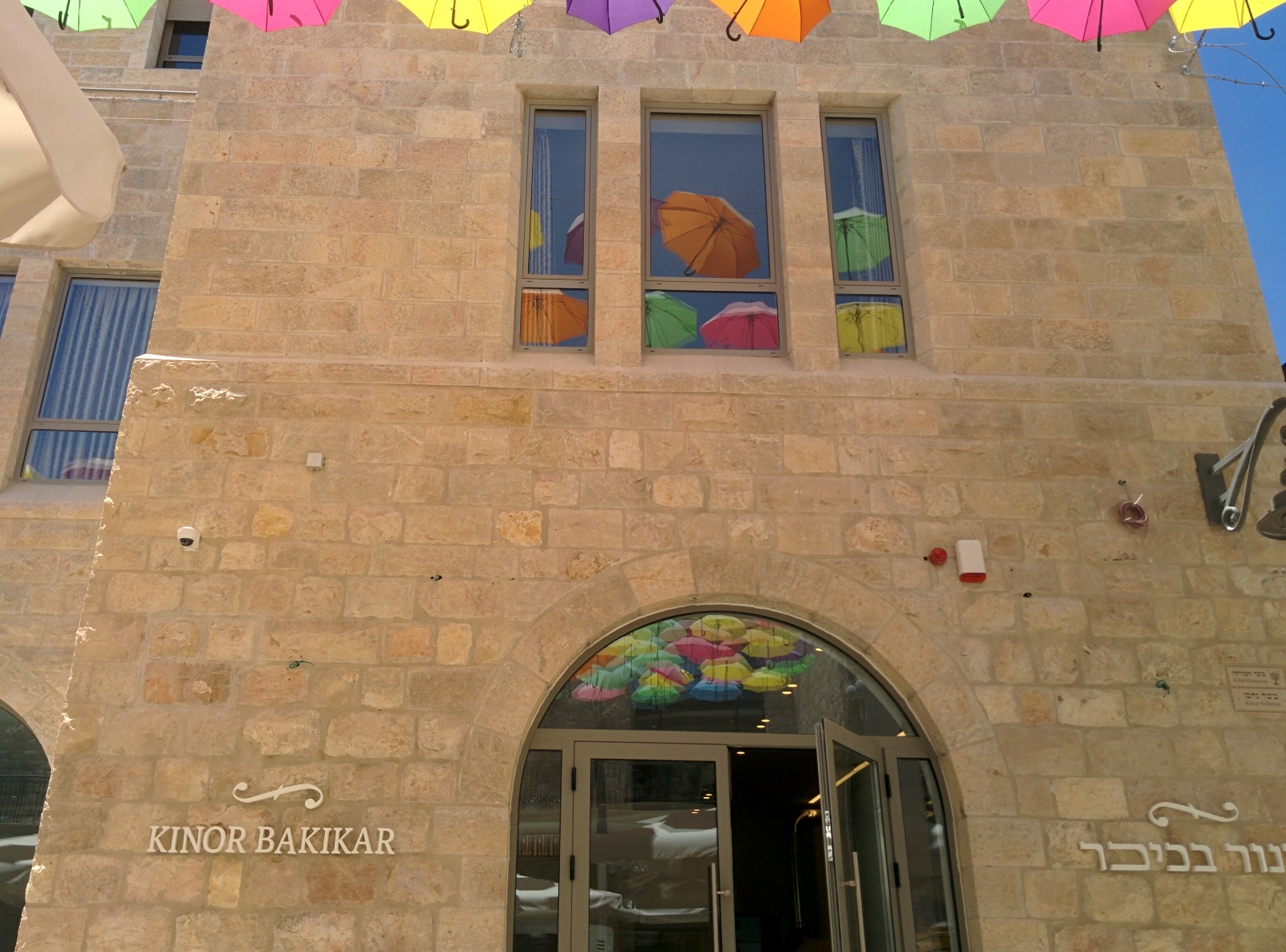
“We wanted to provide a platform of honor for the cultural heritage of Jewish Diaspora music, and there is no place more appropriate than Jerusalem. At the Hebrew Music Museum for the first time anyone can learn about our musical heritage in a technological, innovative and interesting way,” Levy tells ISRAEL21c.
Every visitor gets a tablet and headphones so they can learn more details, play games such as musical trivia, and hear each of 260 musical instruments displayed in exquisitely appointed rooms.
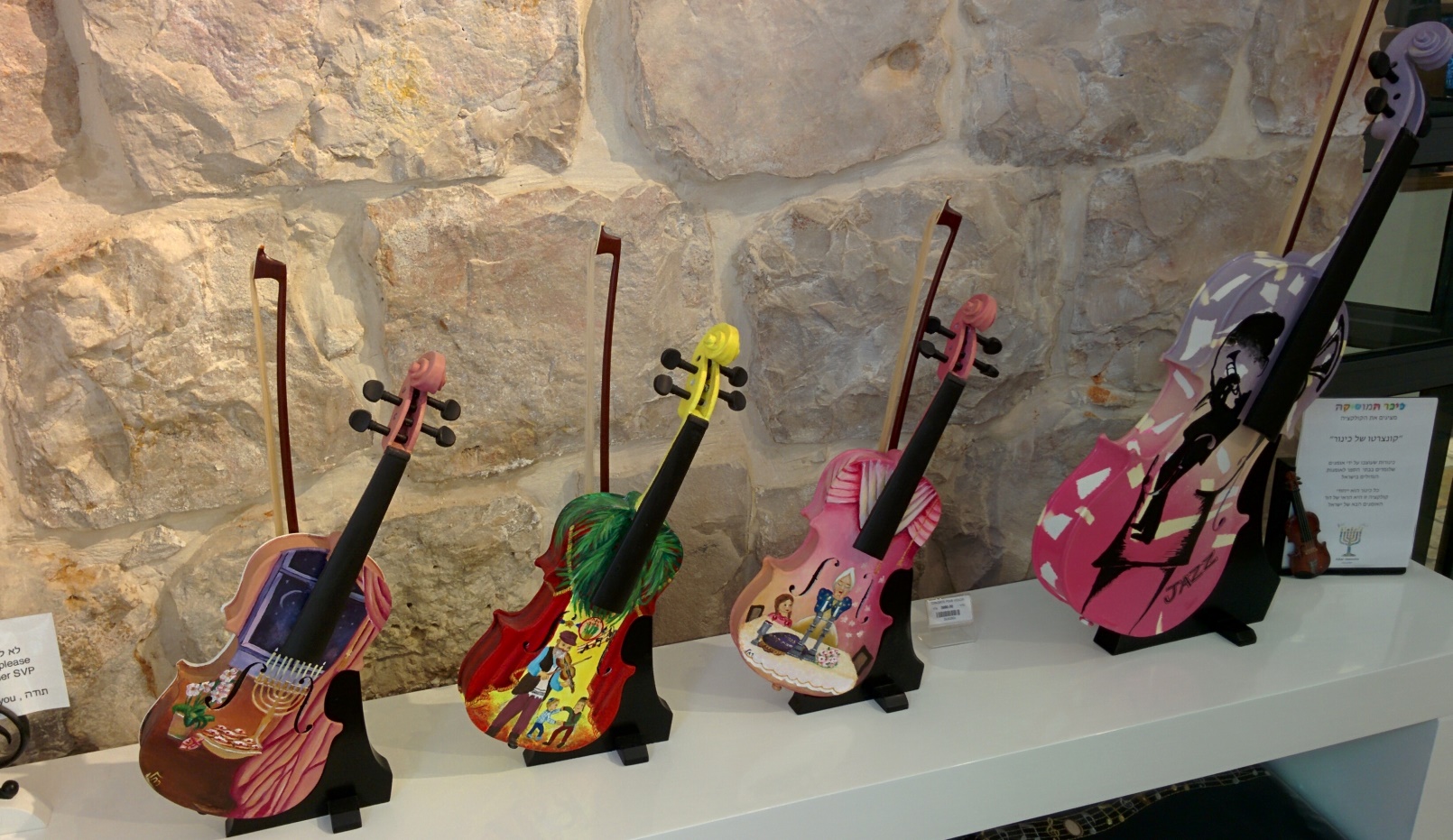
Self-guided tours are available in English, Spanish, Russian and French as well as Hebrew. Throughout August, guided tours (usually available for an extra fee over admission) are offered at no charge.
Museum Director Eldad Levy is an expert in playing antique instruments such as the harmonium (a biblical accordion), ancient hand drums and the Persian santur, a stringed wooden box played with mallets. He was hired by Laurent Levy to play at a family event, and the two ended up conceptualizing the museum together.
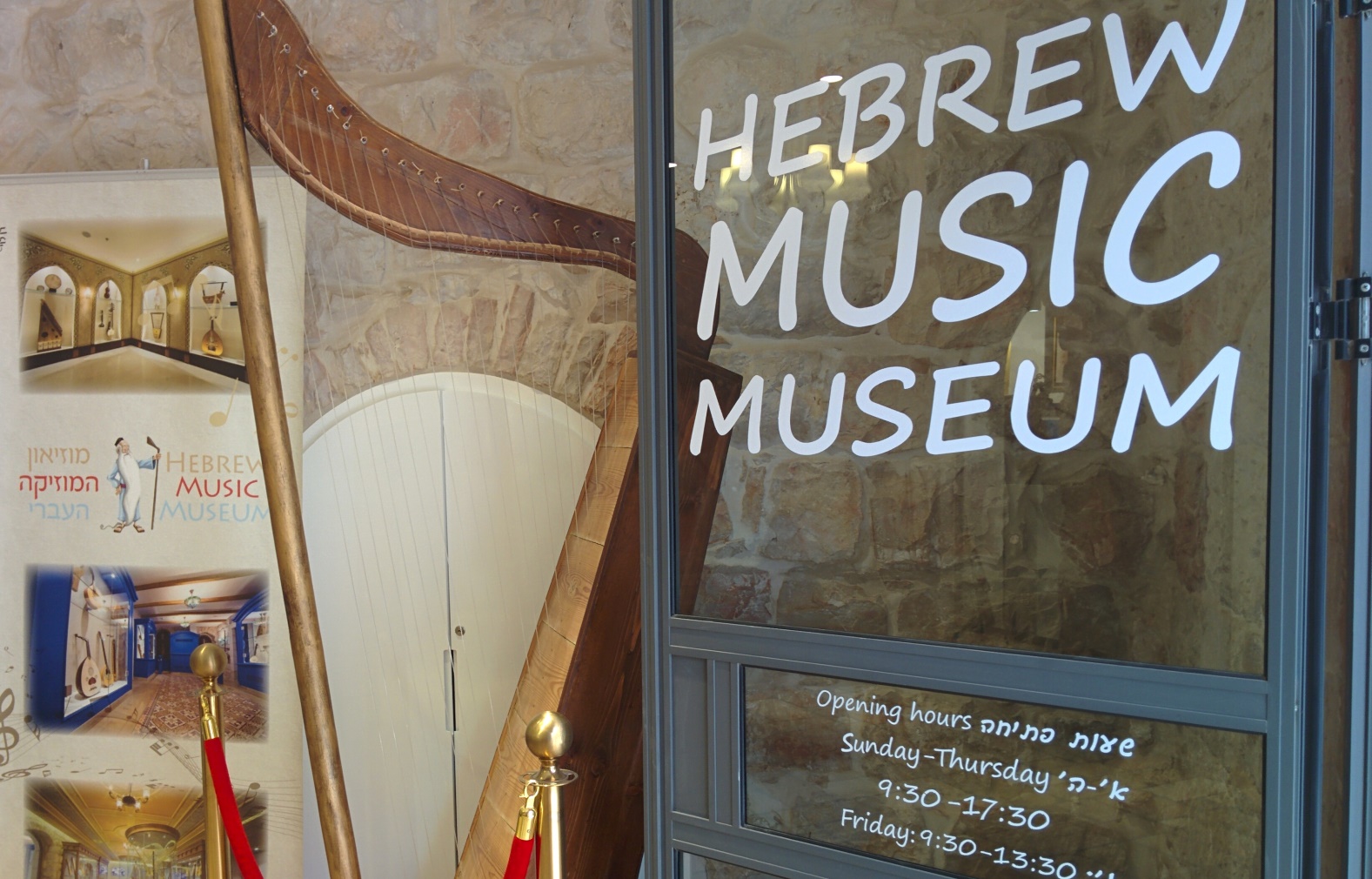
The furnishings and décor were handcrafted by artisans including Neal Oseroff — who hand-painted the Atrium ceiling in the Waldorf Astoria Jerusalem — according to the aesthetic of the particular region: Morocco-Andalusia, Central Asia, Europe, the Balkans, Iraq/Syria, Israel, Yemen and Africa.
“The collections are grouped geographically to display how Hebrew music evolved in the diaspora following the destruction of the first Holy Temple in Jerusalem by the Babylonians 2,500 years ago,” explains Yaniv Levy, the museum’s marketing manager.
The Levites
Though Laurent, Eldad and Yaniv Levy are not related, their surname implies that they are all descended from the biblical tribe of Levi, which provided vocal and instrumental music in the two Jewish temples of ancient Jerusalem – in walking distance from the site of the museum in the Nachalat Shiva neighborhood.
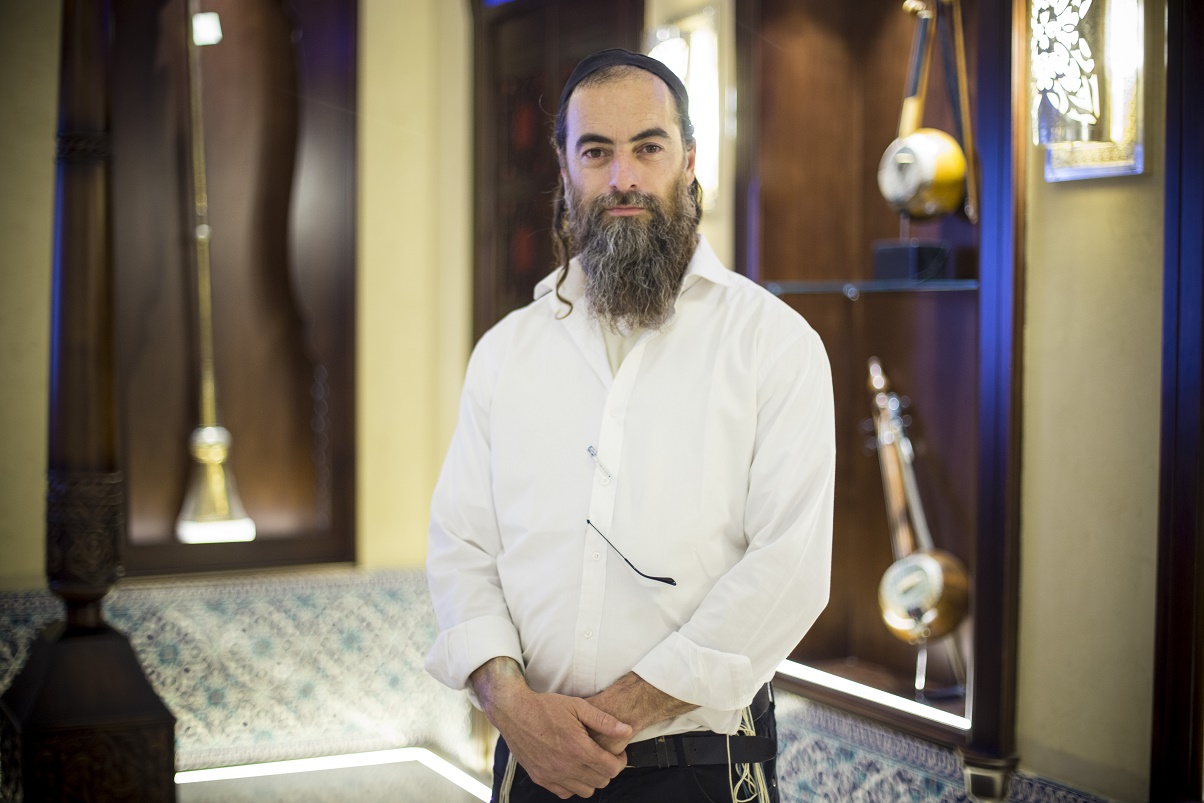
The museum features a tabletop model where visitors can put on Oculus headsets for a virtual-reality tour of the Temple and its music-making Levites.
Another high-tech touch is a display of wind instruments such as the ram’s horn. When you blow into them they trigger various scenes on a screen, such as a sunrise.
An auditorium is being built on the top floor of the museum for concerts, lectures and private events.
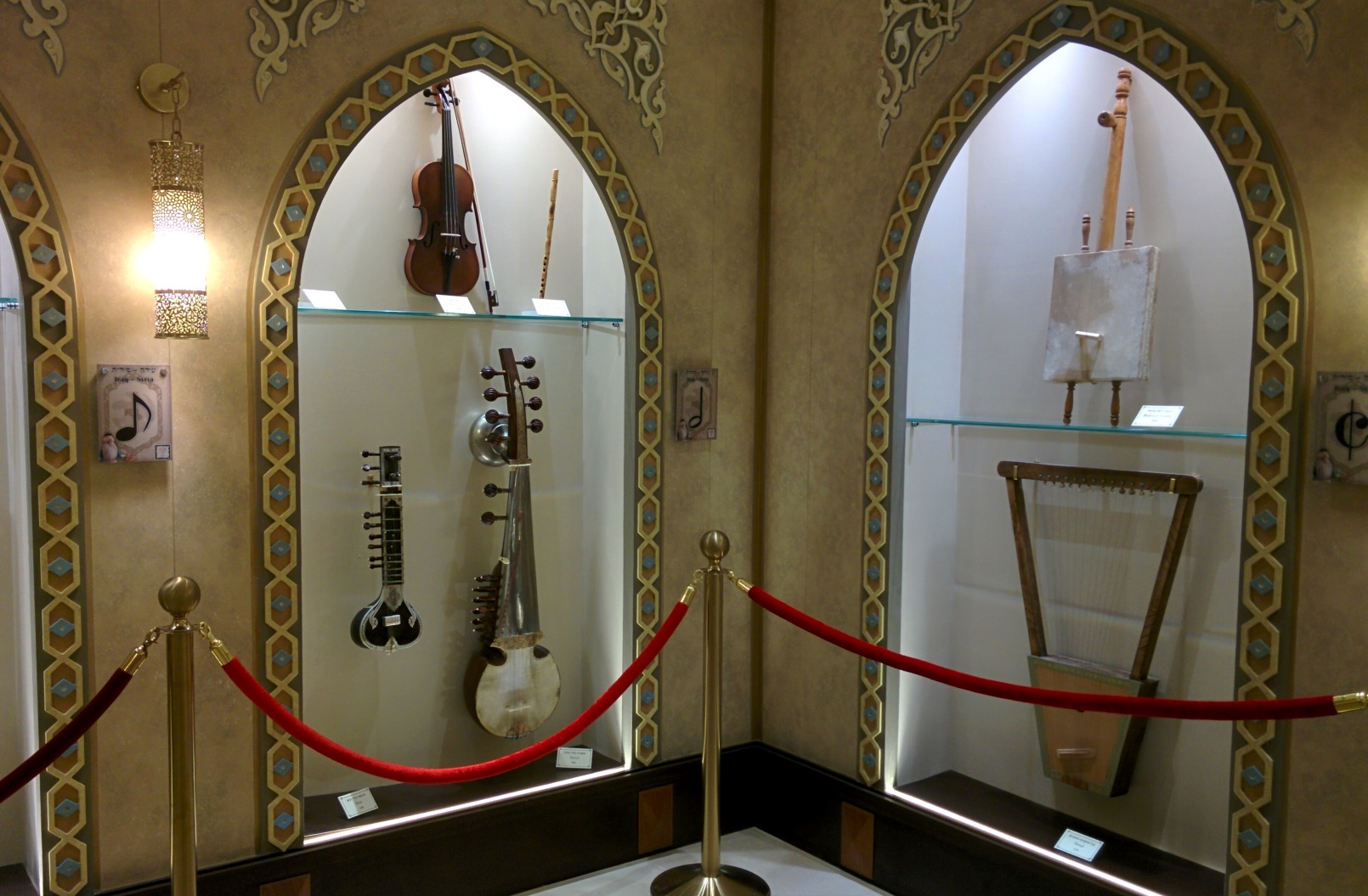
“We believe music brings people together,” says Yaniv Levy. “We want to create a connection to the different people in Israel via music. The aesthetics of the museum is very important to the vision. When people hear and see magnificent things it touches the good in themselves. And when you are able to touch the good in someone, the good spreads out.”
For more information, click here.




